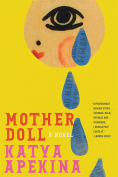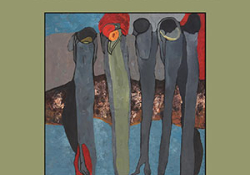The Joyful Song of the Partridge by Paulina Chiziane
 New York. Archipelago Books. 2024. 485 pages.
New York. Archipelago Books. 2024. 485 pages.
Sixty-eight-year-old Paulina Chiziane doesn’t write for your approval but rather to protect the sanctity of her people’s memories. She doesn’t want the history of the Mozambiquan people to be distorted by time and white historians whose focus is always elsewhere. Her books describe the horrors of slavery and colonialism from Portuguese invaders. The endless wars followed, and finally independence, which fell far short of its idealistic promise. Despite the ongoing carnage, Mozambique remains in Chiziane’s mind a place of beauty and holiness where luscious palm trees seem to sprout wherever you look. She knows there “will still be a need for a thousand and one revolutions to come.” But she has learned not to hurry. Instead, she writes voraciously using feverish yet ethereal prose that dances around her magical flights and imaginings. Chiziane has strong preferences she is unafraid to admit; like her distaste for the patriarchy, but her displeasure somehow lives harmoniously with her love of Mozambique’s most ancient and sacred traditions.
In The Joyful Song of the Partridge, we see a seductive, naked woman named Maria das Tores swimming in the River Licungo. The women onshore think they see a “mermaid queen on a throne of clay” and fear she will bring disaster upon them. Maria das Tores is searching for her children, as she has been for the past quarter of a century. While escaping her abusive husband to whom she was sold as a child bride, she fell asleep on a mountaintop and woke up to find all three children missing. The villagers think she is a madwoman, but Chiziane illustrates for us how she is nothing of the sort. Maria das Tores is just hopelessly encapsulated inside her pain, like so many others around her. Her mother, Delfina, was once a prostitute. But then she became a married woman to the kind and gentle Jose dos Montes, who was once a slave. They both became assimilados, assisting the Portuguese invaders in subjugating their own brethren in exchange for a sliver of the spoils.
This act of horrific betrayal doesn’t haunt Delfina as much as it does her husband Jose dos Montes, who sees how he has been corrupted, thinking: “The lives of others don’t matter, what counts is power. For human shoulders are the steps men climb in narcissistic pursuit.” Jose sends his former friends into exile, some he massacres, and others he sends to work on plantations. All the while, instead of feeling emboldened, he feels as if he is drowning and senses Delfina pulling away from him. She has taken an older white man as her lover and soon gives birth to a mulatto child whom she sees as the golden calf who will bring fortune to her family as well as a longed-for acceptability. She treats her mulatto daughter differently from her black children; giving her treats and gently brushing her hair while treating this child as some sort of special offering that must be protected at all costs. Her other children she is often callous with.
Chiziane’s characters become fully fleshed out in our minds; we can almost hear them breathing. She refrains from judging even the actions of the most hardened and loves them equally. She bestows forgiveness on all. They are all victims of a distorted white privilege that rules the world and must be dismantled, but there seems to be no timetable set for such an occurrence. Chiziane resents the white colonialists who plundered her land and came with the Christian church as their carrying card, hoping it would dupe the natives into believing in their holiness and superior stature. But we sense Chiziane and her heartbroken characters see through this deception. They prefer the God one finds deep in the forest where one can scream, shout, sing, or cry as they wait for a sleepy God to make his appearance. It is only there they think they get a glimpse of Him.
Her most devious character, Delfina, who is not above selling her daughters or herself for money or some privilege or another, is unforgettable because Chiziane manages to make us understand her willingness to act in such a reckless and heartless manner. We feel Delfina’s hopelessness and see how the situation she faces forces her to consider extreme measures. Delfina is a conniver, filled with lust and violence just like the men who devour her, yet we empathize with her exhaustion as she describes the rhythm of black life: “Blacks being tormented. Loading. Unloading. The crack of the whip. Strikes and deaths. Images that inspire melancholy and sadness in her.” We become Delfina’s allies despite her machinations. We watch with her as she stares at the glowing white cities all lit up at night by electricity so powerful it has the capacity to subdue “the moon’s brilliance.” And we lower our heads in prayer for what we have done.
Elaine Margolin
Merrick, New York

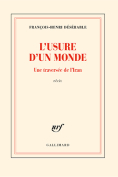


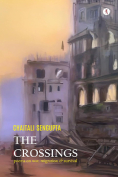


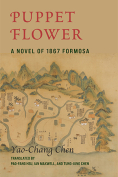
![The cover to [...] by Fady Joudah](/sites/worldliteraturetoday.org/files/styles/backissue_small/public/Joudah.jpg?itok=HZO1_68A)


